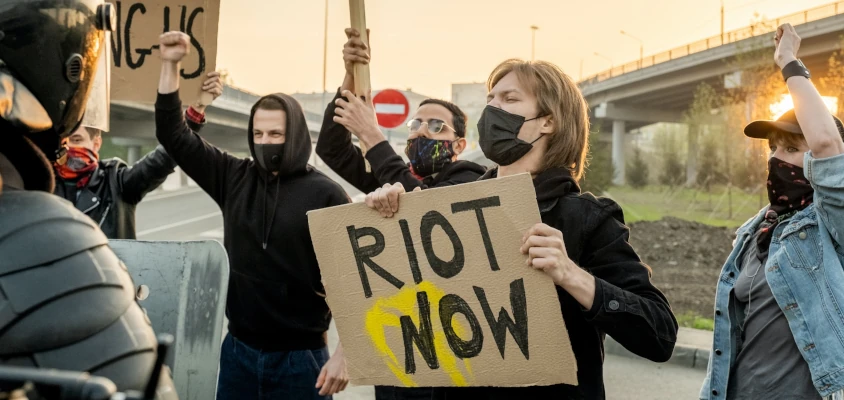General Strikes Sweep Nation Ahead of the 2024 Election

As economic conditions worsen across the country, a wave of discontent takes hold, culminating in a series of general strikes that rock the nation in the lead-up to the 2024 election. Workers, frustrated by the increasing unattainability of the American dream, unite in a mass demonstration against economic policies that they perceive as exacerbating inequality and stifling upward mobility.
The Economic Unrest Unfolds
Against a backdrop of rising inflation, job insecurity, and a growing wealth gap, workers across various industries begin to mobilize. General strikes, characterized by widespread work stoppages and demonstrations, become the catalyst for a nationwide movement demanding economic justice and fair labor practices.
The strikes transcend traditional union boundaries, bringing together workers from diverse sectors who share a common frustration with policies that appear to favor the wealthy at the expense of the working class.
A Unifying Call for Change
The general strikes are accompanied by a unifying call for change. Workers demand a reassessment of economic policies to ensure fair wages, improved working conditions, and greater opportunities for upward mobility. The movement gains traction as it resonates with a broad cross-section of the American workforce, from blue-collar workers to white-collar professionals.
Social media becomes a powerful tool for organizing and amplifying the voices of the movement. The hashtag #EconomicJustice trends across platforms, serving as a rallying cry for those advocating for a more equitable distribution of resources and opportunities.
Political Responses
The general strikes force political leaders to respond to the growing unrest. Candidates vying for the presidency in the 2024 election find themselves compelled to address the concerns of the striking workers. The movement becomes a focal point of campaign debates, shaping the discourse around economic policies and labor rights.
Some candidates align themselves with the workers' demands, proposing reforms and initiatives aimed at addressing income inequality. Others emphasize the need for stability and caution against measures that could disrupt the economy further.
A Tipping Point for Change
As the strikes persist, the nation reaches a tipping point. The movement for economic justice not only influences the election narrative but also sparks broader conversations about the fundamental values that underpin the American dream. The strikes become a symbol of a collective desire for a fair and inclusive society.
Political leaders are forced to grapple with the urgency of addressing economic disparities, recognizing that the outcome of the 2024 electionhinges on their ability to offer meaningful solutions to the issues raised by the striking workers.

Widespread general strikes ahead of the 2024 election paints a vivid picture of a nation grappling with economic discontent and a desire for systemic change. The movement, fueled by a diverse coalition of workers, becomes a powerful force that shapes the political landscape and prompts a reevaluation of economic policies.
As the nation heads to the polls, the legacy of the general strikes looms large, challenging political leaders to confront the urgent need for economic reform. The outcome of the election becomes a referendum on the nation's commitment to addressing the concerns of its workforce and building a more equitable future.
Note: This article is a work of fiction and does not represent any real-world events.
 2024 WTF?
2024 WTF?